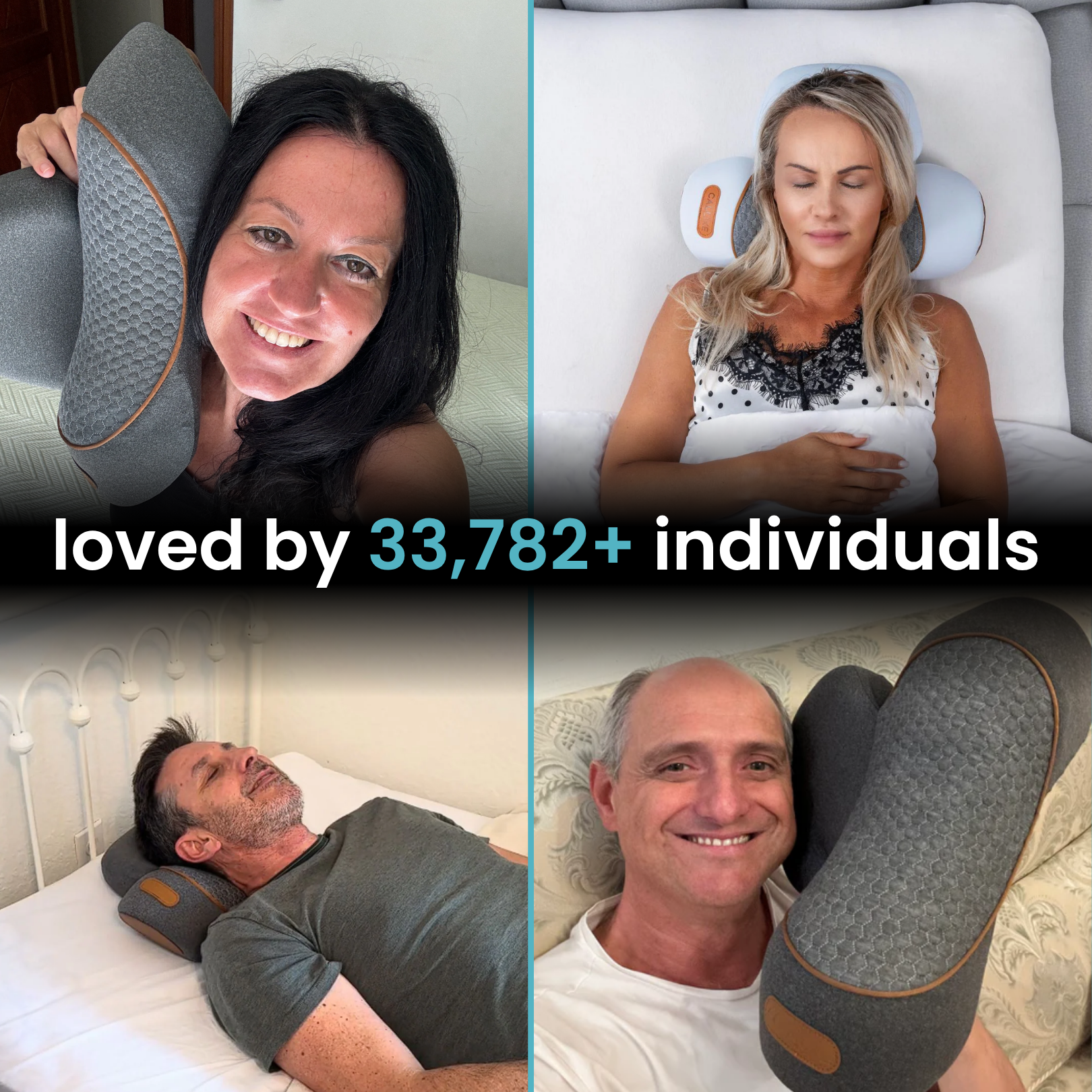
Memory Foam Pillow vs. Neck Pain Relief Device: Sleep Solutions 2025
Table of Contents
- Introduction
- Understanding Sleep-Related Neck Pain
- Memory Foam Pillows: Features and Benefits
- Neck Pain Relief Devices: Features and Benefits
- Comparing Efficacy in Pain Relief
- User Experience and Comfort
- Cost Analysis
- Safety and Health Considerations
- Future Trends in Sleep Solutions (2025 and Beyond)
- Making an Informed Choice
- Conclusion
- References and Further Reading
Introduction
Quality sleep is essential for maintaining overall health, boosting immunity, and ensuring mental clarity. However, many individuals struggle with neck pain and discomfort during sleep, which can significantly diminish sleep quality. As we approach 2025, innovative sleep solutions are emerging to address these issues. In this article, we compare two popular options: memory foam pillows and neck pain relief devices, to help you make an informed choice for better sleep and neck health.
Understanding Sleep-Related Neck Pain
Causes of neck pain during sleep
- Poor posture: Sleeping in awkward positions strains neck muscles.
- Inadequate pillow support: Using pillows that do not support natural neck curvature causes discomfort.
- Underlying medical conditions: Conditions like cervical spine issues or arthritis can contribute to pain during sleep.
Impact of neck pain on sleep quality and daily life
Persistent neck pain can lead to difficulty falling asleep, frequent awakenings, and overall poor sleep quality. Over time, this can affect daily functioning, mood, and productivity, making effective solutions crucial.
Memory Foam Pillows: Features and Benefits
Material composition and technology
- Viscoelastic foam properties: Memory foam molds to your head and neck, providing personalized support.
- Customization and contouring: These pillows adapt to different sleep positions, ensuring proper alignment.
Advantages for neck support
- Pressure relief: Memory foam cushions neck muscles, reducing strain.
- Adaptability: Suitable for side, back, and stomach sleepers due to their contouring ability.
Limitations and potential drawbacks
- Heat retention: Some memory foam pillows trap heat, causing discomfort for hot sleepers.
- Durability: Over time, the foam can degrade, losing support and comfort.
Neck Pain Relief Devices: Features and Benefits
Types of devices available in 2025
- Cervical traction devices: Gentle stretching to decompress the cervical spine.
- Adjustable neck braces and supports: Stabilize and align the neck during sleep or relaxation.
- Electronic therapy gadgets (e.g., TENS units): Deliver targeted electrical stimulation to relax muscles and reduce pain.
Benefits for pain alleviation
- Targeted therapy: Directly addresses specific muscle tensions and inflamed areas.
- Customizable settings: Devices can often be tailored to individual comfort and needs.
Limitations and considerations
- Comfort and convenience: Some devices may be bulky or uncomfortable for overnight use.
- Cost and accessibility: Advanced devices can be expensive and may require professional guidance.
Comparing Efficacy in Pain Relief
Scientific studies indicate that both memory foam pillows and neck relief devices can effectively reduce neck pain, but their suitability varies. Memory foam pillows offer passive support suitable for everyday comfort, while relief devices provide targeted therapy, often resulting in faster pain alleviation. User testimonials frequently cite significant improvements with combined use, and clinical trials support their effectiveness for different types of neck pain, including muscular strain and joint issues.
User Experience and Comfort
Ease of use is a critical factor. Memory foam pillows are generally straightforward—simply replace your old pillow with one designed for support and comfort. Conversely, neck pain relief devices may require proper setup and adjustment, but modern designs emphasize portability and ease of use. Both solutions can integrate seamlessly into a sleep environment, and maintenance is minimal—memory foam pillows typically need occasional washing, while electronic devices require routine care and battery replacements.
Cost Analysis
Memory foam pillows typically range from $30 to $150, depending on quality and brand. High-end models offer advanced support features. Neck pain relief devices have a broader price spectrum, from budget-friendly supports for around $50 to high-tech electronic therapy systems costing upwards of $500. Investing in quality products can provide long-term benefits, making them worthwhile additions to your sleep routine.
Safety and Health Considerations
When using any sleep support or therapy device, safety is paramount. Potential risks include allergic reactions to foam materials or skin irritation. Electronic devices must be used according to instructions to avoid electrical or muscular injury. Consultation with healthcare professionals is recommended before starting new therapies, especially if underlying medical conditions exist, ensuring personalized and safe options.
Future Trends in Sleep Solutions (2025 and Beyond)
The integration of smart technology and AI is transforming sleep health. Future systems may offer personalized sleep and pain management through real-time monitoring, adaptive support, and tailored therapy. Wearable devices are expected to play a significant role in tracking sleep quality and providing data for customized interventions, making sleep solutions more effective and accessible.
Making an Informed Choice
Choosing between a memory foam pillow and a neck pain relief device depends on your specific needs. Factors such as the severity of pain, budget, comfort preferences, and medical advice should guide your decision. Sometimes, combining both approaches yields the best results—using memory foam for daily support and relief devices for targeted therapy. Prioritize good sleep hygiene by maintaining a consistent sleep schedule and creating a comfortable sleep environment.
Conclusion
Both memory foam pillows and neck pain relief devices offer distinct advantages in alleviating neck discomfort and improving sleep quality. Your optimal solution will depend on personal preferences, specific pain issues, and professional guidance. As sleep technology advances into 2025, exploring new, personalized options can significantly enhance your health and well-being.
References and Further Reading
- Scientific studies and clinical trials on sleep support and neck pain therapies
- Expert opinions and product reviews from sleep specialists
- Consumer guides and professional medical advice for choosing the best solution
Check out this amazing product: FisioRest Pro™ - 3-in-1 Cervical Therapy System.

